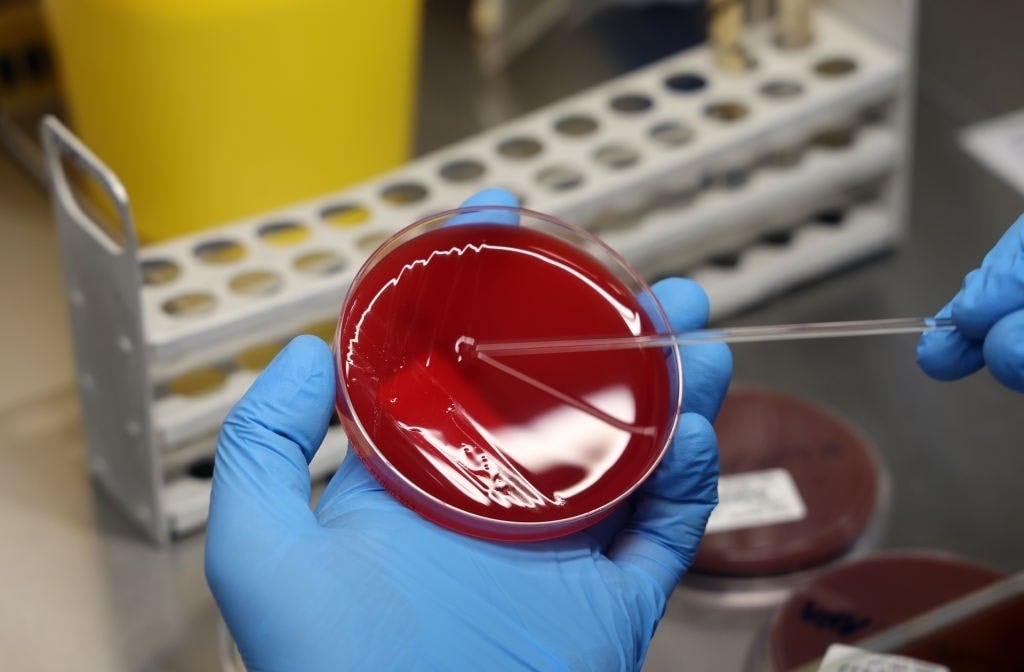Social Justice Ideology Compromises “Real” Science
Scientific inquiry jeopardized by ideological taint
(Photo by Bernd Wüstneck/picture alliance via Getty Images)
Once upon a time, scientific inquiry was premised on ideas of objectivity, factual analysis, and avoiding bias. The advent of social justice theory, post-modernist thought, and climate alarmism have polluted the waters of many once-prestigious science journals. This political transformation of what was once called science has given rise to pseudo-scientific partisanship on both sides of almost every issue. The result is dubious science, public confusion, and growing distrust of the scientific community, including the CDC and other public institutions.
America is reportedly engaged in a “culture war” that is itself delineated by two scientific worlds. Was COVID-19 created in a lab using dubious gain-of-function research, or did it hop to humans in a live-animal market in Wuhan? Are hormone blockers and gender surgeries beneficial and lifesaving for youth suffering from gender dysphoria, or irreversible sterilizations with potentially deadly and horrid outcomes? Is the planet doomed to end in a decade due to human-caused carbon emissions, or are such claims overblown and alarmist? This atmosphere of scientific division is seeding public distrust.
The Politicization of Science
Science itself has been politicized, and many major science platforms have been tainted. An intriguing survey of this modern phenomenon by the Manhattan Institute’s James B. Meigs concludes:
“Unfortunately, progressive activists today begin with their preferred policy outcomes or ideological conclusions and then try to force scientists and journalists to fall in line. Their worldview insists that, rather than challenging the progressive orthodoxy, science must serve as its handmaiden. This pre-Enlightenment style of thinking used to hold sway only in radical political subcultures and arcane corners of academia. Today it is reflected even in our leading institutions and science publications.”
A Failure of Journalistic Integrity?
Previously vaunted publications such as The Lancet, Nature, and Scientific American have come under fire for controversial positions in many of these important public policy areas. Scientific American openly endorsed Joe Biden in 2020, claiming “The evidence and the science show that Donald Trump has badly damaged the U.S. and its people,” a not very scientific claim. The outlet later became an ardent opponent of the lab-leak theory, in articles such as “Lab-Leak Hypothesis Made It Harder for Scientists to Seek the Truth.” Bad science tainted with partisan bias may well damage the American people.
The result of this science-warping division is that citizens are becoming increasingly distrustful of scientific arguments and institutions. As the government seeks to stifle scientific inquiry contrary to its official endorsement of climate change, transgenderism, or the animal-transmission theory, disinformation, and misinformation have become linguistic terms of coercion. This further deteriorates public trust: no wonder more Americans have become “vaccine-hesitant,” a situation that is itself then employed to tamp down even harder on dissenting viewpoints. This vicious cycle seeds rancor and more societal division, in a vicious cycle that threatens scientific integrity as well as human health.
This muddying of the intellectual waters has been further compounded by a growth in shoddy scientific journals touting fraudulent “studies.” The Wall Street Journal reports that a “flood of fake science” has forced the closure of multiple journals “infected by large-scale research fraud.” The biggest casualty has been 217-year-old Hoboken, N.J. publisher, Wiley:
“In the past two years, Wiley has retracted more than 11,300 papers that appeared compromised, according to a spokesperson, and closed four journals. It isn’t alone: At least two other publishers have retracted hundreds of suspect papers each. Several others have pulled smaller clusters of bad papers.
“Although this large-scale fraud represents a small percentage of submissions to journals, it threatens the legitimacy of the nearly $30 billion academic publishing industry and the credibility of science as a whole.”
Finding Truth in a Post-Modern Chaos
In the not-so-distant past, readers critically seeking a balanced understanding of political or scientific issues could read the two sides and seek to find a middle ground. In the post-modern milieu of compromised science journals and partisan wrangling, both science and humanity suffer in a spiral that may not wane in time to prevent a major catastrophe. If facts are morphed willy-nilly to suit one’s socio-political agenda, nothing is reliable and there is no solid ground for either scientific or public policy.
As Meigs explains:
“….science is theoretically supposed to be insulated from political influence. Sadly, the new woke style of science journalism reframes factual scientific debates as ideological battles, with one side presumed to be morally superior. Not surprisingly, the crisis in science journalism is most obvious in the fields where public opinion is most polarized.”
The world seeks reliable data and policies with which to fashion crucial private and public decisions. The death of “real science” is a loss to both sides of the political aisle.
(Previously published at Liberty Nation.)






"of what was once called science"... What was once called science is still science. What they are doing is called fraud.
Science was going to be man's savior and keep him alive forever. The religion of scientism was born and like all false religions eventually morphed into opposing sides and corruption of its principles of objectivity particularly after governments and wealthy individuals with preconceived results flooded scientific researchers with loads of money. Like all of our institutions, money is the root of all of their collapse into ideological entities where fraud and corruption are promoted, honored and rewarded.